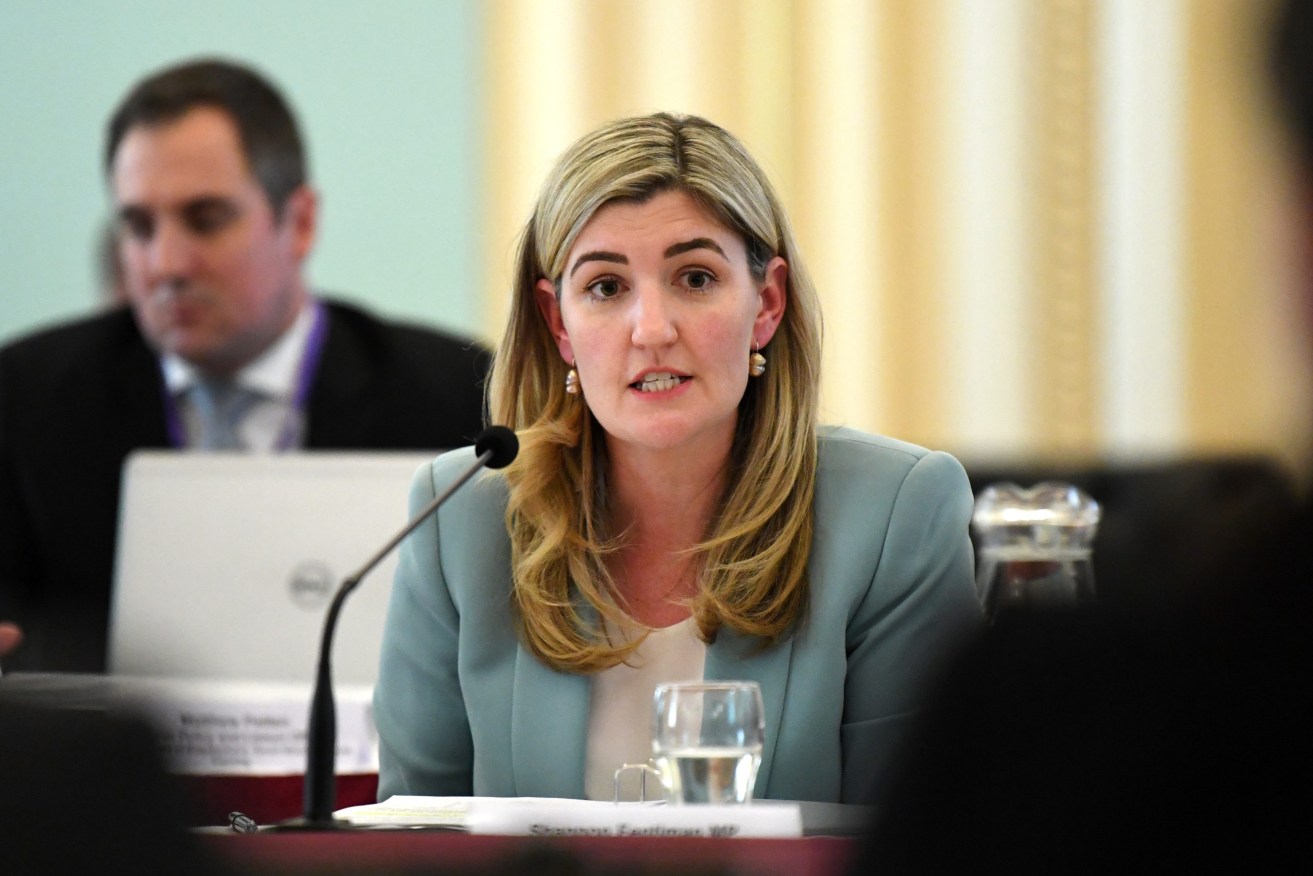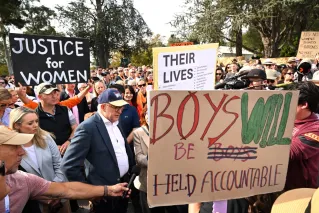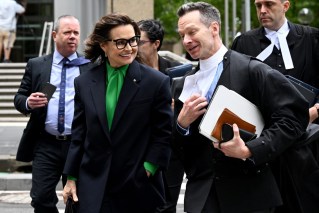Finally, it’s time to get tough on casinos – or is it?
Last Monday Robert MacDonald wrote the Queensland Government needed to stop being bluffed by casino operators. Just three days later, Attorney-General Shannon Fentiman announced tighter controls. But are they as tough as she claims?


Health Minister Shannon Fentiman. (AAP Image/Dan Peled)
The Queensland Government has finally realised it needs tougher casino rules.
Last Monday in this space, I wrote Queensland’s lawmakers had spent decades being bluffed by casinos owners.
Cash-hungry state governments have routinely given in to casinos’ demands for special treatment and threats of loss of business and investment (and tax revenue) if they didn’t get their way.
This, I theorised, could partly explain the appalling behaviour uncovered by the recent and current interstate inquiries into Australia’s two biggest casino operators – Crown and Star.
Casinos, I suggested, had simply lost any fear of easy-beat state regulators.
Just three days after my column, State Attorney-General Shannon Fentiman announced Queensland was introducing tougher casino and gambling laws to Parliament.
It would be nice to claim some credit for this sudden new tack – InQueensland roars, governments listen, or some such.
But the government has actually been working on changes to its existing casino and gambling laws for several months.
It was apparently shocked into action by the various allegations – some now proven – of money laundering, criminal infiltration and other integrity issues raised in the various casino inquiries in other states.
“These reforms seek to address concerns which have emerged from the public inquiries into casinos operated by Crown Resorts in New South Wales, Victoria and Western Australia, as well as investigations underway into the Star Entertainment Group,” Fentiman said in her announcement.
“This bill will ensure Queenslanders can have confidence in the integrity of our casino laws.”
But are the proposed changes as tough as Fentiman claims or has the government been bluffed yet again by the casinos?
The first thing that struck me was how pro-casino the current oversight laws must be if these are the changes.
For instance, the bill “imposes a new duty on casino entities and associates to comply with all reasonable requests made by the minister or regulator to do everything necessary to ensure that the management and operation of a casino is conducted fairly and honestly.”
Shouldn’t that already be a given? Surely you don’t need to tell a business don’t be dishonest.
Or when it comes to casinos, on the basis of recent evidence, perhaps you do.
The bill also introduces a “broad prohibition on providing false or misleading information” to the regulators.
Again, does prohibiting lying need to be expressly specified in law? Perhaps it does.
But the biggest weakness the proposed new laws expose is just how limited the government currently is when it comes to disciplining casinos for breaking the rules.
The government, under the existing legislation, has few punishment options – suspending or cancelling casino licences, leases or management agreements.
And, as Racing Minister Grace Grace noted in introducing the new casino and gaming bill, “Suspension or cancellation of a casino licence, or the termination of a casino lease, or casino management agreement, would have major impacts on innocent parties such as casino employees, local suppliers and the state.”
In other words, it’s a sort of nuclear option, which, if chosen, would wreak havoc not only on the casino operators but also parts of the Queensland economy.
Little wonder the casino companies have been so seemingly indifferent to following the rules. It would be a brave government that opts for the path of mutually assured destruction.
The government’s proposed solution is to introduce large fines for misbehaviour – up to $50 million.
“Significant penalties are sought to ensure penalties are not seen, given the profits generated by casino gaming, as an ‘acceptable cost of doing business’,” it says in the explanatory notes to the new bill.
The introduction of substantial penalties also potentially solves a very serious problem the Palaszczuk administration could soon be facing.
What happens if the current NSW Independent Liquor and Gaming Authority inquiry into Star, which is due to deliver its final report in August, recommends removal of the company’s Sydney casino licence?
Would the Queensland government follow suit, less than a year before the opening of the Queen’s Wharf project?
How spectacularly embarrassing would that be for everyone concerned?
The proposed new laws offer a way out – a big financial penalty rather than the massive disruption of cancelling a casino licence.
Painful but not the end of the world for Star, which pre-Covid-19 was making more than $150 million annually before interest, tax and depreciation from its Queensland properties.
Have the casino operators bluffed the Queensland Government once again?
Not this time.
This time, I think the government and the casinos have joined forces to bluff the Queensland public.
“Look,” they can say, “tough new fines and promises to do better”.
Certainly, the regulator will now have a bit more power to investigate the inner workings of the casinos — powers they should have already had.
And some basic tenets of integrity — be honest, don’t lie — will be enshrined in law.
But otherwise, it should be business as normal, 24 hours a day, seven days a week.












